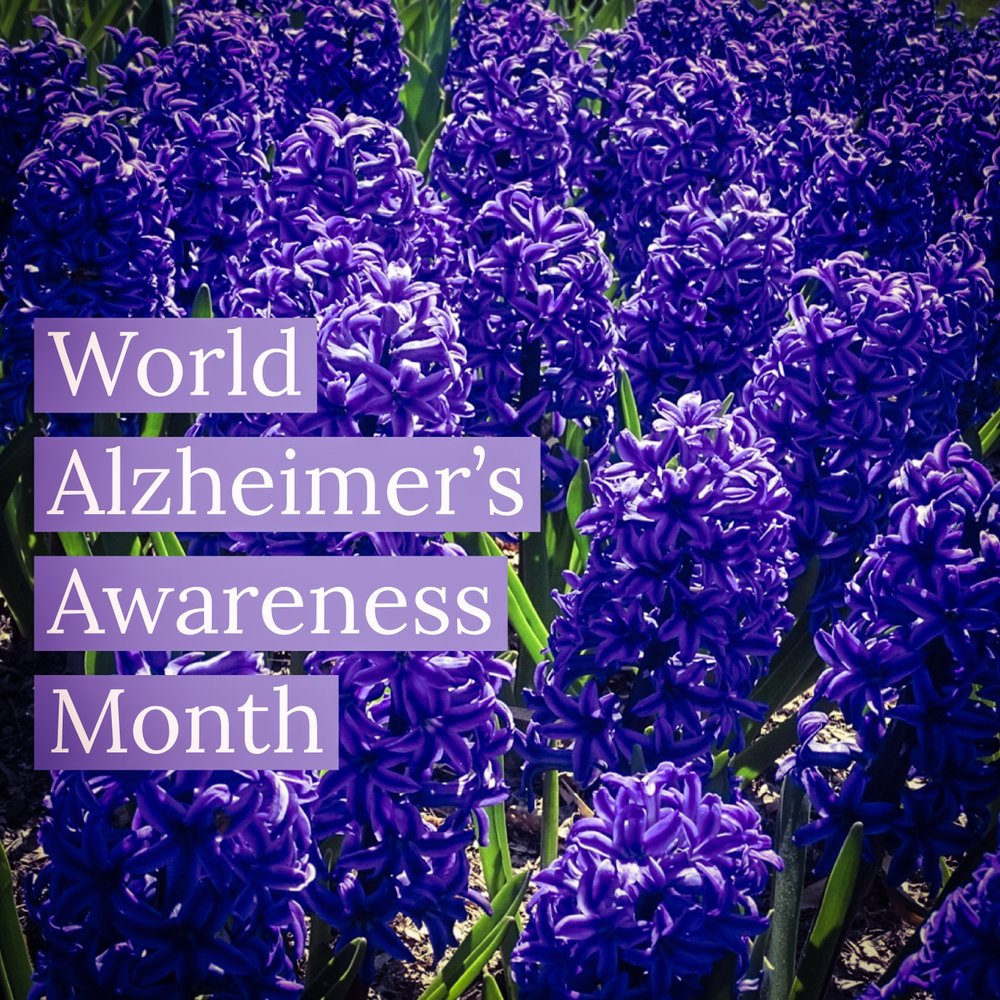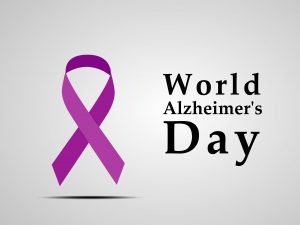September Is “World Alzheimer’s Month,” held every September to raise awareness and challenge the stigma that surrounds dementia. Launched in 2012 by Alzheimer’s Disease International (ADI), World Alzheimer’s Month 2018 will mark the 7th year this international campaign was launched, in order to reflect and respect those living with dementia around the world.
This followed the organization’s decision to make September 21st “World Alzheimer’s Day” starting in 1994. While the 21st remains a worldwide day of awareness, ADI thought that one day wasn’t enough time for Alzheimer’s associations throughout the world to educate people on the condition.
The ADI organization is calling on more countries to recognize Alzheimer’s disease and other dementias as a public health crisis today, so we are taking a look at how several different countries approach dementia care and are sharing how they’re preparing for a growing population of people who have age-related cognitive impairment.
According to the ADI’s reports, every three seconds someone in the world develops dementia, with nearly 50 million people currently living with the disease worldwide. Perhaps more alarmingly, that number is expected to reach 132 million by 2050.
The Facts About Alzheimer’s Disease And Dementia:
Dementia is a brain condition that affects parts of the brain that control thought, memory, and language. and Alzheimer’s disease is the most common form of dementia. While the risk of developing Alzheimer’s disease increases with age, Alzheimer’s disease is not considered a “normal” part of aging. Most people living with Alzheimer’s disease are older than 65 years; however, people younger than age 65 can develop Alzheimer’s disease (though it is not common.)
Unfortunately, scientists still do not know what causes Alzheimer’s disease. However, like other chronic conditions, it is probably a result of multiple factors.
Alzheimer’s disease and related dementias can seriously affect a person’s ability to carry out daily activities, and as such the ADI feels that it is important that everyone to help spread the word about Alzheimer’s disease, and one of the first steps toward raising awareness is educating people on important facts concerning the progression of the illness and the number of older adults that it affects around the world. Here are a few essential facts that everyone should know in honor of World Alzheimer’s Month:
- Many Seniors Living With Alzheimer’s Do Not Know They Have It: according to ADI, the early signs of dementia include problems speaking or finding the right words during conversations, behavioral changes and difficulty with daily tasks like dressing. However according to the Alzheimer’s Association, even after these symptoms are recognized by a health professional, only 45% of patients are told by their doctors of their diagnosis. The failure to disclose the diagnosis to patients and their caregivers can prevent seniors from receiving the early treatment they need.
- Dementia Impacts More People Ever Year: ADI estimated that around 44 million people in the world are currently living with dementia. While this is already a high number, it’s supposed to continue to increase over the years, rising to 135 million by 2050.
- Alzheimer’s Often Leads To Preamture Death: Many people know that Alzheimer’s disease causes debilitating memory loss that can make daily tasks difficult. However, it’s essential that individuals are aware that Alzheimer’s is actually the sixth leading cause of death among the U.S. population, explained the Alzheimer’s Association. As there is currently no cure for dementia, the disease is the only illness in the country’s top 10 causes of death that can’t be prevented or even slowed, noted the source.
- Dementia Is Among One Of The Most Costly Diseases In The U.S: The cost of treating and caring for Alzheimer’s patients is around $226 in the U.S. this year, according to the Alzheimer’s Association. As the number of individuals with dementia grows, so will the annual cost associated with the disease. By 2050, it will rise to $1.1 trillion if doctors are still unable to slow or prevent the disease.
Is It Normal Memory Loss Or Alzheimer’s Disease/Dementia?
Although everyone’s brain changes as they age, it’s important to understand that Alzheimer’s disease is not a normal part of aging.
Memory loss is typically one of the first warning signs of Alzheimer’s disease, but occasionally forgetting words or names does not mean a person has Alzheimer’s. There are other signs that someone in the early stages of Alzheimer’s disease may experience in addition to memory problems.
In the early stages of the disease, these can include:
- Getting lost in familiar places.
- Having trouble handling money and paying bills.
- Repeating questions.
- Taking longer to complete normal daily tasks.
- Displaying poor judgment.
- Losing things or misplacing them in odd places.
- Displaying mood and personality changes
In our recent blog article, “The Difference Between Age-Related Memory Loss And Alzheimer’s Disease, Unicity Healthcare discusses in length this topic, and how to determine if your aging loved may need to be evaluated for dementia-related diseases.
When To Consider A Dementia Evaluation
It’s time to consult a doctor when memory lapses become frequent enough or sufficiently noticeable to concern you or a family member. If you get to that point, make an appointment as soon as possible to talk with a primary physician to have a thorough physical examination. Your doctor can assess your personal risk factors, evaluate your symptoms, eliminate reversible causes of memory loss, and help obtain appropriate care. Early diagnosis can treat reversible causes of memory loss, or improve the quality of life in Alzheimer’s or other types of dementia.
You might consider having your loved one screened for dementia if they have begun having difficulty with the following:
- Remembering new things
- Dealing with numbers and logical thinking
- Performing familiar activities
- Understanding the passage of time:change of months/seasons
- Changes In Vision Or Perception
- Carrying On A Conversation
- Losing Things
- Poor Decision Making
- Socializing/Hobbies.
- Drastic Change In Personality Or Mood
Memory Care At Unicity Healthcare
Unicity Healthcare takes an individualized approach to caring for adults with Alzheimer’s or Dementia. We understand that no two clients are the same, and, as such, we develop an individualized service plan, incorporating all aspects of the person’s life and family. There are several steps to our process, and each is important in creating the Unicity Homecare approach, one that stresses personalization, dedication and quality care.
All our staffs undergo regular training sessions on Alzheimer’s and other form of dementia related disease. Our Care Managers are dementia experts/ practitioners and they have significant experience dealing with Alzheimer’s clients and their family. Our in depth care assessments are customized and include, among several other cognitive tests, an interpretation of Folstein’s Mini-Mental State Exam. Safety being a major concern when dealing with Alzheimer’s people at home, our assessment includes a review of the elderly’s home environment. Because the person may experience changes in judgment, orientation to time and place, behavior and senses, our Care Managers make sure the home environment is safe and supportive.
There are many ways to get involved if you want to support the Alzheimer’s education and awareness cause.
One way is to contact your local Alzheimer’s Association to request more information at www.alz.org. Another option is to visit the World Alzheimer’s Month website by CLICKING HERE
The organization has launched a “coordinated global voice on dementia,” to promote AD awareness and education throughout the year. You can follow the campaign on Facebook and other social media websites, go to your local Alzheimer’s Association website for more details.
On social media, use the hashtag: #WorldAlzMonth
According to the ADI, “the global dementia crisis is increasing in severity, with it set to become a trillion-dollar disease in 2018.” Those numbers are staggering and not without cause to try and do more about this worldwide epidemic.
Thus during this month and beyond, the ADI works to “call on world governments and individuals to support initiatives for greater awareness.”
****
We’re Here To Help
When the time comes to consider home care for your loved one, you may seek help from Unicity’s qualified home care professionals to help ease the burden.
For more information please contact us at:
Email: info@unicity-ec.com
Explore Unicity Healthcare’s website: www.unicity-ec.com




